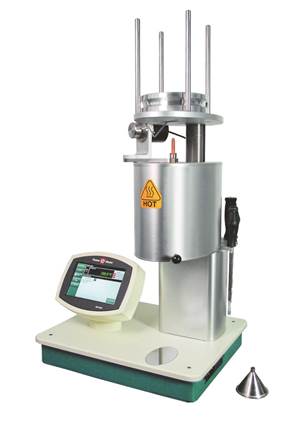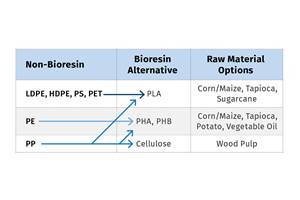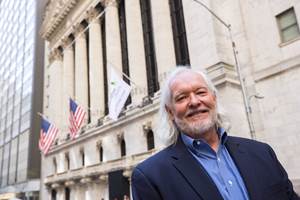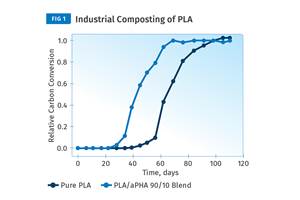Bioresin Company Takes ‘Do It All’ Approach
Close Up: Materials
Company adopts 'cradle to cradle' approach.
In business since 2005, Ecospan LLC recently ramped up its operations in the U.S. in a move that may in time include some part production. Up to now, Ecospan (ecospan.com) has worked with partners in Europe and Asia for compounding and injection molding the company’s proprietary formulations. With a spanking new, 18,000 ft² plant in Exton, Pa. and equipment of various types installed or on order, this biobased material supplier has been delivering whole solutions through a do-it-all approach in an effort to reduce the carbon footprint of durable-goods clients in electronics, toys, and cosmetics.
Headquartered in Greenbrae, Calif., the company’s core products are compounds of biobased resins and natural materials marketed under the BioFlow tradename. Earlier this year, Ecospan announced that its materials had been certified by the U.S. Dept. of Agriculture (USDA) as being 94% biobased within its BioPreferred Program, well above the USDA’s target of 25% for such a designation.
While the BioFlow line currently consists of more than 300 different proprietary blends, Ecospan is positioning itself as more than just another company on the growing list of biomaterial suppliers. “One distinction is that we are focusing on delivering whole solutions for durable-goods applications,” remarks Paul Cannon, v.p. of marketing and sales. “We’ll work on application development with the client for their product, managing the design and development of the mold and the part in order to deliver the final product to the customer. And perhaps most importantly, we develop and implement an end-of-life strategy for every product we make, closing the loop so that the product gets back to us, ground up, and reused.”
In mid-March, Ecospan was expected to take delivery of a 27-mm co-rotating twin-screw compounding extruder from Leistritz, Somerville, N.J. The Exton facility was designed to support larger machinery in the future as local opportunities present themselves, Ecospan officials say. Ecospan will continue to outsource material production, depending on where the customer is located.
In Exton, Ecospan also has a 309-ton injection molding machine from Nissei America, Anaheim, Calif., and is in the market for a second press in the 70-80 ton range. While these machines are currently planned primarily for trials, Ecospan would not rule out using them for production runs in the future, should the local need arise. In the U.S., the company is focused on molded products now, but would not rule out venturing into other processes that have already been qualified as it continues to expand, remarks John Vandenbergh, Ecospan’s v.p. of operations.
‘REVERSE’ LOGISTICS CASE
One of Ecospan’s biggest commercial successes to date is a “reverse logistics” application for smart phones. The end product is a case that is used to ship a smart phone back and forth from a repair center. “This was a situation where we talked to the smart-phone carriers, the branded smart-phone manufacturers, and the logistics players—in this instance, the company that fixes the phones—about a solution for a company that repairs 30 different models of phones,” says Cannon.
“The process started with us providing a 3D rendering of the product concept, which went through several iterations,” Cannon recalls. “Then we built the prototypes, made some modifications based on feedback from the client, built the mold, and ran the product at one of our partner molders.”
The end result was a petroleum-free case with a recycled foam insert that was molded with a living hinge, which Cannon says is unique for a bioplastic application. The case can easily be used 20 to 30 times, says Cannon. At the end of its life, it is returned to the company, ground and reused in what Ecospan terms a “cradle-to-cradle” operation.
Ecospan also has supplied a line of smart-phone accessories for a client that already had a functioning part, but wanted to go “green.” Here, Ecospan and its partners color-matched and molded the part in the U.S
Related Content
Melt Flow Rate Testing–Part 1
Though often criticized, MFR is a very good gauge of the relative average molecular weight of the polymer. Since molecular weight (MW) is the driving force behind performance in polymers, it turns out to be a very useful number.
Read MoreHow to Optimize Your Molds and Hot Runners for Processing Bioresins
Demand for bioresins is growing in molded goods, particularly as a sustainability play to replace fossil-fuel based materials, but these materials are not a drop-in replacement for traditional materials. Molds and hot runners need to be optimized for these materials.
Read MoreWhy Are They Blending Biopolymers?
A sit-down with bioplastic producer Danimer Scientific showed me there are more possible answers to that question than I had previously thought.
Read MoreBlend Amorphous PHA with PLA to Improve injection Molded Part Properties
Adding aPHA to PLA can boost a range of mechanical properties and expedite composting. Here are the details as well as processing guidelines for injection molding the blends.
Read MoreRead Next
How Polymer Melts in Single-Screw Extruders
Understanding how polymer melts in a single-screw extruder could help you optimize your screw design to eliminate defect-causing solid polymer fragments.
Read MorePeople 4.0 – How to Get Buy-In from Your Staff for Industry 4.0 Systems
Implementing a production monitoring system as the foundation of a ‘smart factory’ is about integrating people with new technology as much as it is about integrating machines and computers. Here are tips from a company that has gone through the process.
Read MoreLead the Conversation, Change the Conversation
Coverage of single-use plastics can be both misleading and demoralizing. Here are 10 tips for changing the perception of the plastics industry at your company and in your community.
Read More

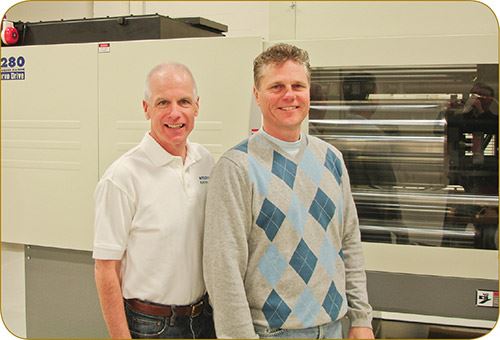
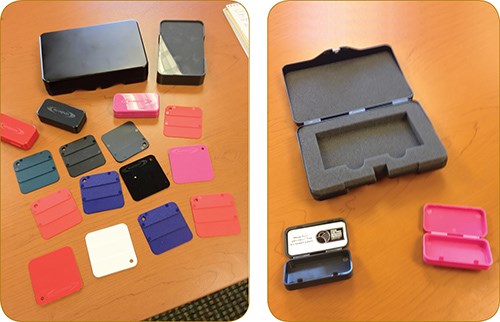














.png;maxWidth=300;quality=90)



